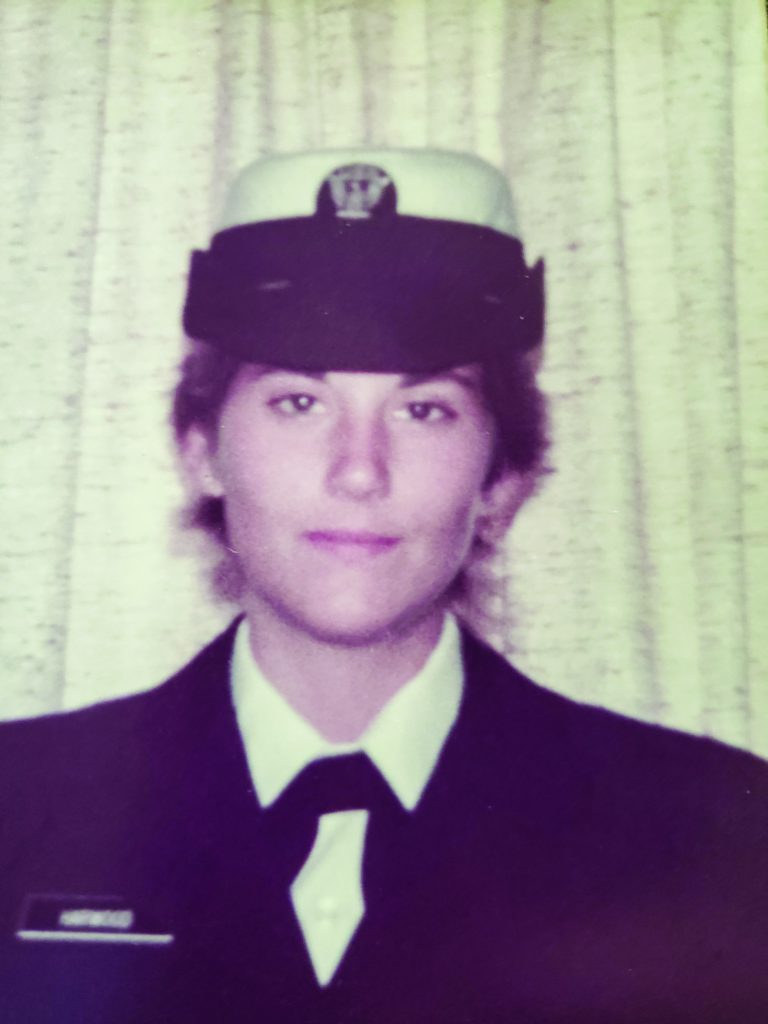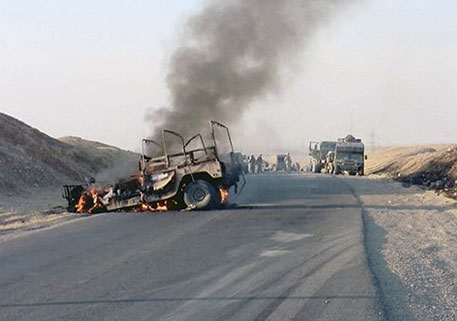
Navy veteran and VA employee facing asbestos poisoning turns to DAV for claims assistance
The earliest memories Myra Harwood has of the Dwight D. Eisenhower VA Medical Center are of visiting her father, a Korean War veteran, when she was 5. When she went to work at that same hospital in 2015 as a nurse practitioner, it felt like a natural homecoming.
“My dad got his care from this VA for as long as I can remember,” she said. “He thought this was the best place on the planet.”
Despite her unwavering commitment to caring for veterans, day in and day out, Harwood was experiencing difficulty with her disability claim. After being exposed to asbestos while serving in the Navy, Harwood’s fight for compensation, health care and recognition was marked by misinformation and a glacially slow appeals process spanning nearly a decade.
She enlisted in the Navy in 1984 partly to break out of her hometown of McLouth, Kan., a tiny community of just 500 people. She couldn’t have foreseen that she would be slowly and steadily exposed to asbestos while assigned to a tugboat in Pearl Harbor, Hawaii, during her service.
Debilitating pain radiating from her abdomen coupled with menstrual complications were the first signs of asbestos poisoning. Receiving an accurate diagnosis, however, proved to be a challenge.
After a battery of exams and tests, Harwood’s gynecologist recommended exploratory surgery. Harwood went under the knife with the hopes of receiving a definitive answer. Eight hours later, she learned that doctors removed all of her reproductive organs, which were riddled with tumors.
Then doctors diagnosed her with a rare form of cancer, abdominal mesothelioma. More commonly found in the lungs, mesothelioma is caused by tiny bits of asbestos, a heat-resistant mineral that can be woven into everything from fabrics to pipe insulation, settling in either the chest or abdomen.
Shortly after that, Harwood says she attempted to file a VA claim but was told that she could not seek benefits because she was not undergoing chemotherapy. Harwood also claims she was told that chronic ringing in her ears was “strictly for the Army.”
Both statements are not only inaccurate but also, in Harwood’s eyes, sexist.
“I was completely discounted because I’m female,” she added. “One-hundred percent.”
She was cancer-free until 2004, when it came back more aggressively and with more-extensive tumors. Since doctors recommended chemotherapy, Harwood attempted to submit her claim again. However, this time, she was told she needed additional evidence that her asbestos exposure stemmed from her military service.
“I know now they can’t tell you not to file the claim,” she added.
When Harwood reached out to DAV in 2011, a claim was immediately submitted. However, her frustrations grew when the Department of Veterans Affairs rejected her claim on the basis that no evidence of lung abnormalities was in her records.
“I laughed at that,” said Harwood. “They were looking at the wrong body part, and they’re not looking at the right body part because I’m not a guy.”
As a medical professional, Harwood thought clarifying the correct type of cancer would be an easy fix, but she found the appeals process to be excruciatingly laborious.
First, it went to the VA regional office. When she was denied again, Harwood opted to have her case heard at the Board of Veterans’ Appeals.
As years went by without any update, she thought it had been lost in the system, until she received notice of the hearing in spring 2018.
That’s when she met Ryan Kimble, a national service officer of the DAV office in Wichita, Kan., who explained the nuances of how the VA determines service connection.
“Each one of those processes can take a few years or longer,” he added.
To demonstrate Harwood’s exposure, Kimble researched to show she was aboard a ship that had asbestos.
“I found documentation online of the tugboat she was on that references asbestos being used,” said Kimble. “In her records, it shows she was on that ship at that time, so we were able to make that link during the hearing.”
The claim was finally approved this past May and backdated to 2011. When Kimble called to deliver the good news, Harwood broke out in tears.
“I was absolutely gobsmacked that the claim was found in my favor,” said Harwood. “I was stunned, and I just don’t think there would have been any positive resolution if it wasn’t for Ryan and DAV.
“With Ryan’s preparation and guidance, it could not have gone better,” she added.






